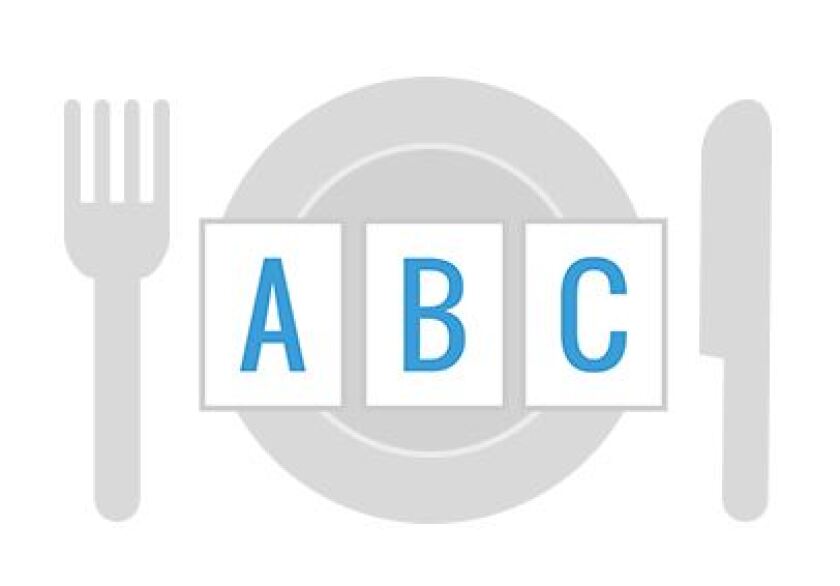Yelp is currently doing a limited release, so some San Francisco restaurants already have their city health inspection score listed in their Yelp review. On Korean restaurant Cocobang's Yelp page, for instance, a government health score of 92 out of 100 from Nov. 12, 2012, is visible above the hours of operation, as is a link to the full restaurant inspection report.
And all San Francisco restaurants will have their health scores listed in the next couple of weeks, said Jay Nath, the city's Chief Innovation Officer. Data from New York City and Philadelphia also is expected in coming weeks, according to a press release from Lee's office.
"They want to make sure they do it right," Nath said, adding that the past year was spent getting the company comfortable with investing in the idea. "That sometimes take time, right? [Yelp] has a lot of different directions that they're thinking about, and for this to filter up and be embraced is a recognition on their part of how much impact it can make and how they can serve their customers better."
For Lee, this new partnership with Yelp is another significant step in the open data movement. “By making often hard-to-find government information more widely available to innovative companies like Yelp, we can make government more transparent and improve public health outcomes for our residents through the power of technology,” he said in a prepared statement.
Take the LIVES Pledge
Other cities can pledge to implement the LIVES standard on foodinspectiondata.us, which is part of the Code for America Peer Network. Doing so, said San Francisco Chief Innovation Officer Jay Nath, doesn't require a tremendous investment. "I think that most cities have this information," he said. "They have inspections throughout their cities, they are throwing them in a database, and it's really just constructing a report that pushes the information out." And when a group of cities are aware of what one another’s doing, said Code for America Founder and Executive Director Jennifer Pahlka, "you can get so much more done by doing things together -- and this is really a great example of that. Getting as many cities as possible to start publishing that food inspection data in that format – it’s a virtuous cycle." And the more platforms like Yelp are interested in publishing the data, Pahlka added, the more the cities are interested in publishing and providing in the standardized format. "And then the more cities that are providing it, additional platforms that then see it as valuable to integrate into their site or into their services, because it’s work that’s done not by a city necessarily but one change – one architectural change – and then you can have more and more of that data available to people. So the network plays a critical role in getting that virtuous cycle going." Image courtesy of foodinspectiondata.us/ Code for America |
Code for America was originally approached to spread the word about LIVES and the Yelp integration, but Founder and Executive Director Jennifer Pahlka said the organization wanted to work with the network of cities with which it has relationships "to make this not just a New York and San Francisco thing, but something that’s available in Yelp nationally," she said.
And Code for America's interest isn’t just in having the information on Yelp. Pahlka said her organization wanted to make the data available "wherever consumers are making decisions about where to eat, because it’s pretty relevant information. So the fact that they [San Francisco] had done this as a data standard that other cities can publish to and that other platforms can then consume is fantastic."
Nath said the new LIVES data standards are similar to transit data standards developed by Google and the city of Portland, Ore., called General Transit Format Specifications. These standards have enabled apps in multiple cities that allow users to map trips using public transit.
"Those apps would not be possible without this data standard," Nath said. "That's a really important piece of working toward the specification; it allows for anyone to utlize this information, and it makes it much easier to take this information and make it much more accessible."
Maintaining open data on restaurant inspections is beneficial for consumers in numerous ways, according to Code for America. When the data is more accessible and user friendly, consumers can make more informed decisions based on how well a restaurant is adhering to food safety regulations. Opening up the data through Yelp can also help promote public health. Having that accountability should motivate and encourage restaurants to aim for better inspection ratings.
"Looking at the [Los Angeles] study that demonstrated a reduction in food-borne ilnesses associated with greater access to health inspection scores, in addition to the median score being raised -- I think it's really interesting to think about how access to information can change behavior and can produce better results," Nath said.
The other benefit Nath says he hopes to see is that this partnership starts a culture change -- that other cities recognize the value of data and of working together as cities to determine how to establish standards and interoperability.
"So it's not just a conversation with people who are technical," he said. "But mayors can now understand that data is of great importance, that we're stewards of this really imprtant asset and that we need to work together as mayors and cities to standardize it and put it out there to provide better services for our constituents and citizens."
Pahlka echoed that sentiment. "I think that data standards provide an opportunity for collaboration that’s very, very lightweight," she said. "So when you have a network of cities that are aware of what each other’s doing, and then of course that happens through the Code for America Peer Network, it also happens through publications and just the general flow of knowledge."
Photo via Jorg Hackemann / Shutterstock.com







